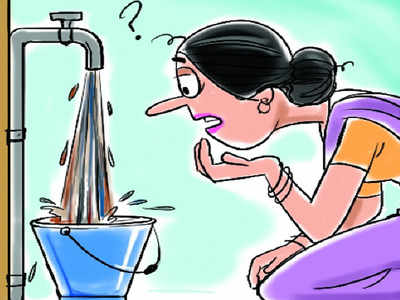The Times of India 23.08.2012
Govt launches measures to tackle water scarcity
GANDHINAGAR: Gujarat government has initiated a series of measures to deal with the situation arising out of water scarcity
in 91 talukas of the state. The main thrust is on cultivation,
acquisition and distribution of fodder which has emerged as a major
challenge.
At a cabinet meeting held in the state capital on
Wednesday, the government has decided to open fodder depots for a
cluster of villages covering a radius 15 kilometres so that fodder can
be made easily available to the farmers. In addition to this, it has
been decided to procure 5 crore kilograms of fodder by floating tenders
in the open market.
“Procurement of fodder would not be a
problem as there has been a substantial amount of rain in central and
south Gujarat,” cabinet minister Jay Narayan Vyas said.
Another decision taken at the meeting was to provide a daily relief of
Rs 25 per cattle head at panjrapoles and gaushalas. This relief is to be
given to recognized institutions and trusts with the permission of
mamlatdars.
Vyas further stated that 11 lakh kg of fodder has
already been distributed at a price of Rs 2 per kg in the scarcity-hit
areas of Saurashtra, Kutch and north Gujarat. Orders have been given to
provide fodder at this rate through the fodder depots in the days to
come.
To encourage fodder cultivation, the government has
already started implementation of a scheme worth Rs 80 crores under
which free seeds and fertilizers are being provided to farmers and
institutions. The government has promised to pay Rs 5,000 per hectare as
an incentive to the farmers undertaking fodder cultivation. In addition
to this gram panchayats removing babul and substituting it with fodder
on gauchar lands up to five hectares would be given a grant of Rs 20,000
per hectare.
Vyas said, “Approval for cultivating fodder will
be given to individual farmers up to 2.5 acres and to voluntary
organizations and trusts up to 25 acres on the land belonging to Sardar
Sarovar Narmada Nigam Limited that is adjacent to the Narmada canal. For
this the water would be made available free of cost for one year.”
The state government has also decided to bear the entire cost of drip
irrigation facility and do away with the charges paid by farmers for
using 2,322 wells of Water Resource Development Corporation.
Meanwhile approval has been granted to Agriculture Produce Market Committees (APMCs) to provide up to Rs 50 lakh from the market fund with the consent of taluka committees for dealing with water scarcity.

